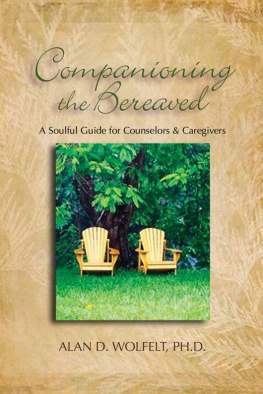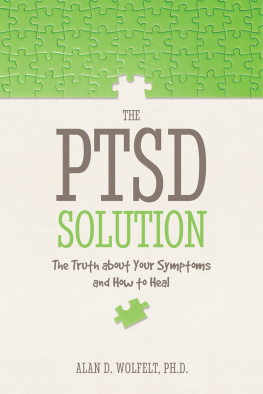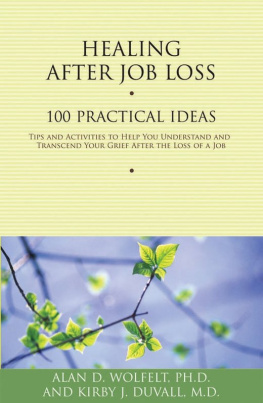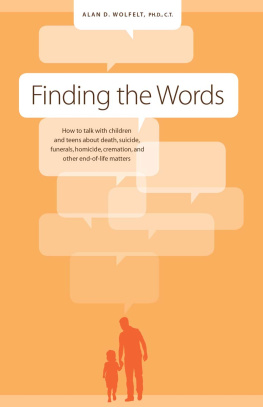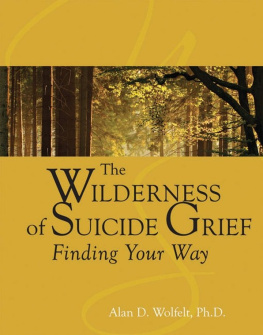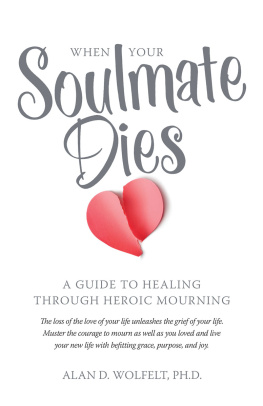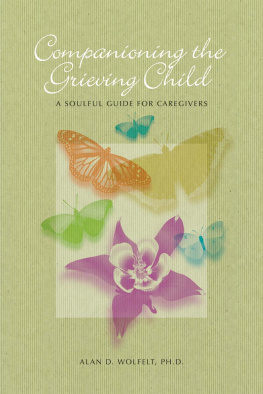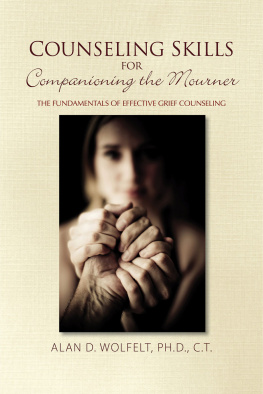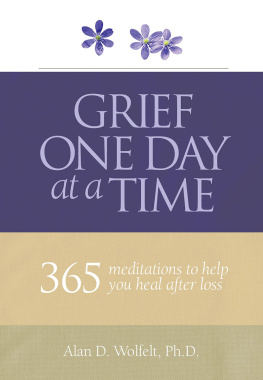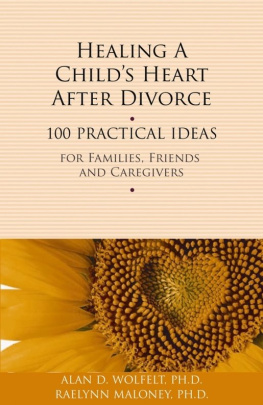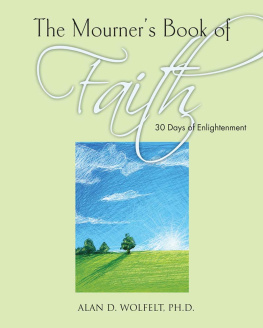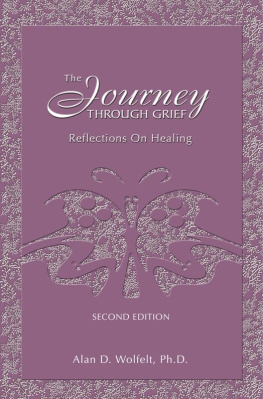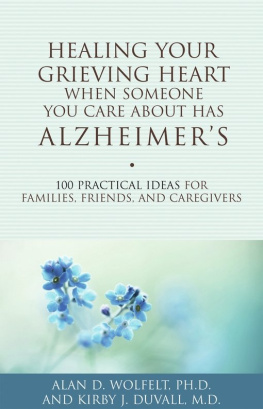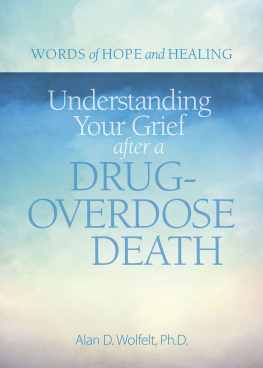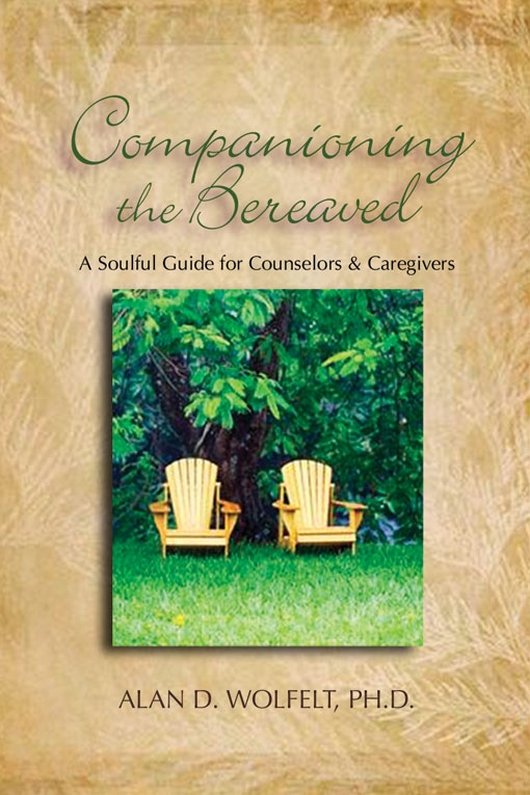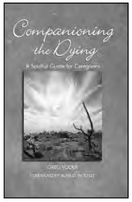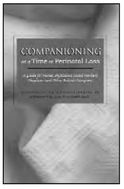It was Thomas Moore who observed, Our science and technologies approach life as a problem to be solved. This made me reflect on the reality that our therapies approach grief as a pathology to be cured. My hope is that you agree with me that it is time to face the need for change in how we support each other in grief.
To experience and embrace the pain of loss is just as much a part of life as to experience the joy of love. As it should be, thoughts, feelings, and behaviors that result from the death of a person who has been loved are impossible to ignore. The experience of grief is very powerful. As we encounter personal loss in our lives, we have the opportunity to make a willful choice of how we are going to use the pain of the griefwhether we are going to channel it to make our lives better or worse.
Companioning as a Reflection of Love
At the very heart of companioning is the need to acknowledge each other as equals, not as therapist and patient. What makes us all equals is that we are all human beings who will come to know the pain and suffering that emanates from the loss of those we have loved. We also need each other.
Companioning can only take place among equals. If anyone believes she has superior knowledge of anothers journey into grief, this belief destroys the foundation of a relationship anchored in unconditional love. Those who project what I call superior expertise cant help but treat the mourner, and usuallyconsciously or unconsciouslytry to achieve some variation of closure. When we see each other as equals, we do not misuse each other. Acknowledging each other as equals is a reflection of love.
Companioning is also about compassionate curiosity. When we support each other with this humility, we open our hearts to another human being. Curiosity encourages us to take off our professional masks and create sacred, hospitable free space for the mourner. It takes time and conscious effort to create this space in a mourning-avoidant culture. Compassionate curiosity encourages us to extend ourselves rather than withdraw into our own worlds. Yes, companioning invites us to extend ourselves, open our hearts wide, be still and really listen.
Companioning also depends on our willingness to reject grief as a pathology and not think of our role as eradicating emotional and spiritual suffering. We must surrender to the wilderness to be willing to wander into the mystery. We have to expect chaos, confusion, disorder, and even despair. So-called negative emotions and experiences are not dangerous. Messiness has its place. Grief loss and change always start with confusion. We cant be companions if we refuse to be confused. Integration of loss often occurs in the space of not knowing. We dont need to be joined at the head with a mourner; we need to be joined at the heart.
Just as we are faced with choices in our personal experiences with loss, we also are faced with choices in our lifes work as companions to those in grief. We can choose to help people avoid the work of their grief, or we can support and accompany people as they fully enter into their grief. If we are able to achieve the latter of these choices, chances are we can become catalysts for Divine Momentum and a renewed sense of meaning and purpose in the lives of our fellow human beings.
I have always been drawn to Robert Frosts classic poem that, in part, reads: Two roads diverged in a wood, and II took the one less traveled by, and that has made all the difference. Companioning is not a technique or a therapy, it is a philosophy and a discipline for every hour, every day, every week, every month, and every year of your life. For me, the road taken is:
- Finding passion and purpose in ministering to those in grief.
- Attending to those things in life that give my life richness and purpose.
- Having gratitude each day for my family and friends.
- Trying to fulfill my destiny, by developing my souls potential.
- Striving to give back what others have given to me.
- By observing what is requesting my attention, and giving attention to it.
- Going out into nature and having gratitude for the beauty of the universe.
- Praying that Im living on purpose and using my gifts whether by writing a book, teaching a workshop, or caring for my children.
- Going through my own struggles with grief and realizing that it is working through these wounds that helps unite me with others.
Every day we each have the opportunity to be companions, to listen with our hearts, and to be curious rather than certain. Thank you so much for taking time to read this book. I hope you choose to see your heart opening to people experiencing grief. When your heart is open, you are receptive to what life brings you, both happy and sad. By staying open you create a pathway to living life fully until you die.
ALSO FROM COMPANION PRESS
Companioning the Dying
A Soulful Guide for Caregivers
By Greg Yoder
Foreword by Alan D. Wolfelt
If you work with the dying in your career or as a volunteer, or if you are a family member or friend to someone who is dying, this book presents you with a caregiving philosophy that will help you know how to respond, and what to do with your own powerful emotions. Most of all, this book will help you feel at peace about both your own role as caregiver and the dying persons experienceno matter how it unfolds.
Based on the assumption that all dying experiences belong not to the caregivers but to those who are dyingand that there is no such thing as a good death or a bad death, Companioning The Dying helps readers bring a respectful, nonjudgmental presence to the dying while liberating them from self-imposed or popular expectations to say or do the right thing.
Written with candor and wit by hospice counselor Greg Yoder (who has companioned several hundred dying people and their families), Companioning The Dying exudes a compassion and a clarity that can only come from intimate work with the dying. The book teaches through real-life stories that will resonate with both experienced clinical professionals as well as laypeople in the throes of caring for a dying loved one.
ISBN 1-879651-42-4 hardcover 176 pages $29.95
All publications can be ordered by mail from:
Companion Press
3735 Broken Bow Road Fort Collins, CO 80526
(970) 226-6050 Fax 1-800-922-6051
www.centerforloss.com
Companioning at a Time of Perinatal Loss
A Guide for Nurses, Physicians, Social Workers and Chaplains in the Hospital Setting
By Jane Heustis & Marcia Meyer Jenkins
Foreword by Alan D. Wolfelt, Ph.D.
The OB unit is the only hospital environment where life begins and, sometimes, tragically ends. Staff must alternate masks of comedy and tragedy as they care for the estimated 2-4 percent of deliveries that end in the death of a baby. Many OB caregivers feel unprepared to handle the intensity of perinatal loss. Most hospitals have bereavement care standards but offer little instruction in following them. Written by seasoned support nurses, Companioning at a Time of Perinatal Loss outlines a framework for bereavement care in the obstetrical arena. Based on Dr. Alan Wolfelts principles of companioning, it describes loss from the familys perspective, defines the caregivers role, offers bedside strategies and reviews the work of mourning in the weeks and months after. Real-life stories teach what is important during times of intense sorrow.

